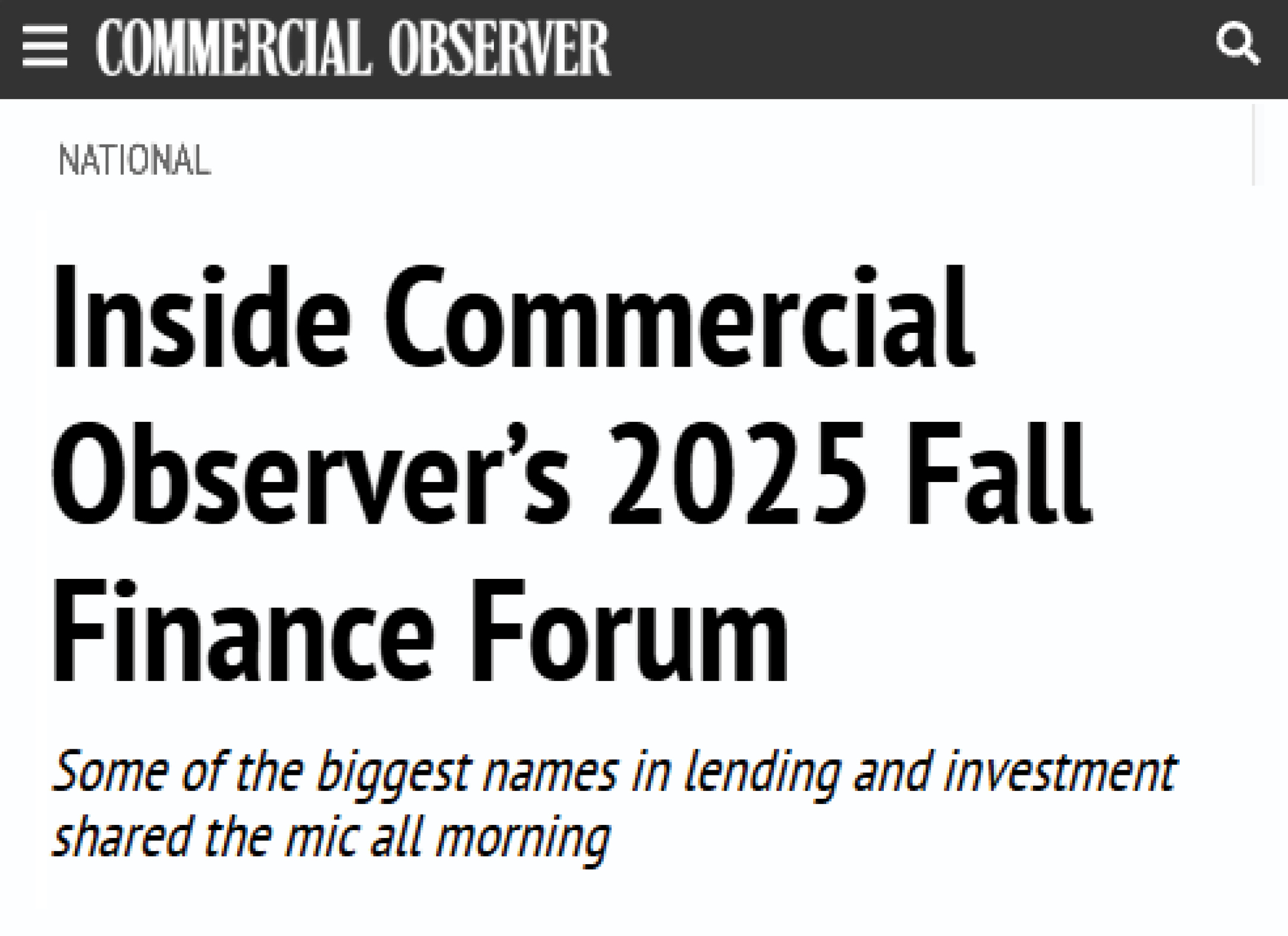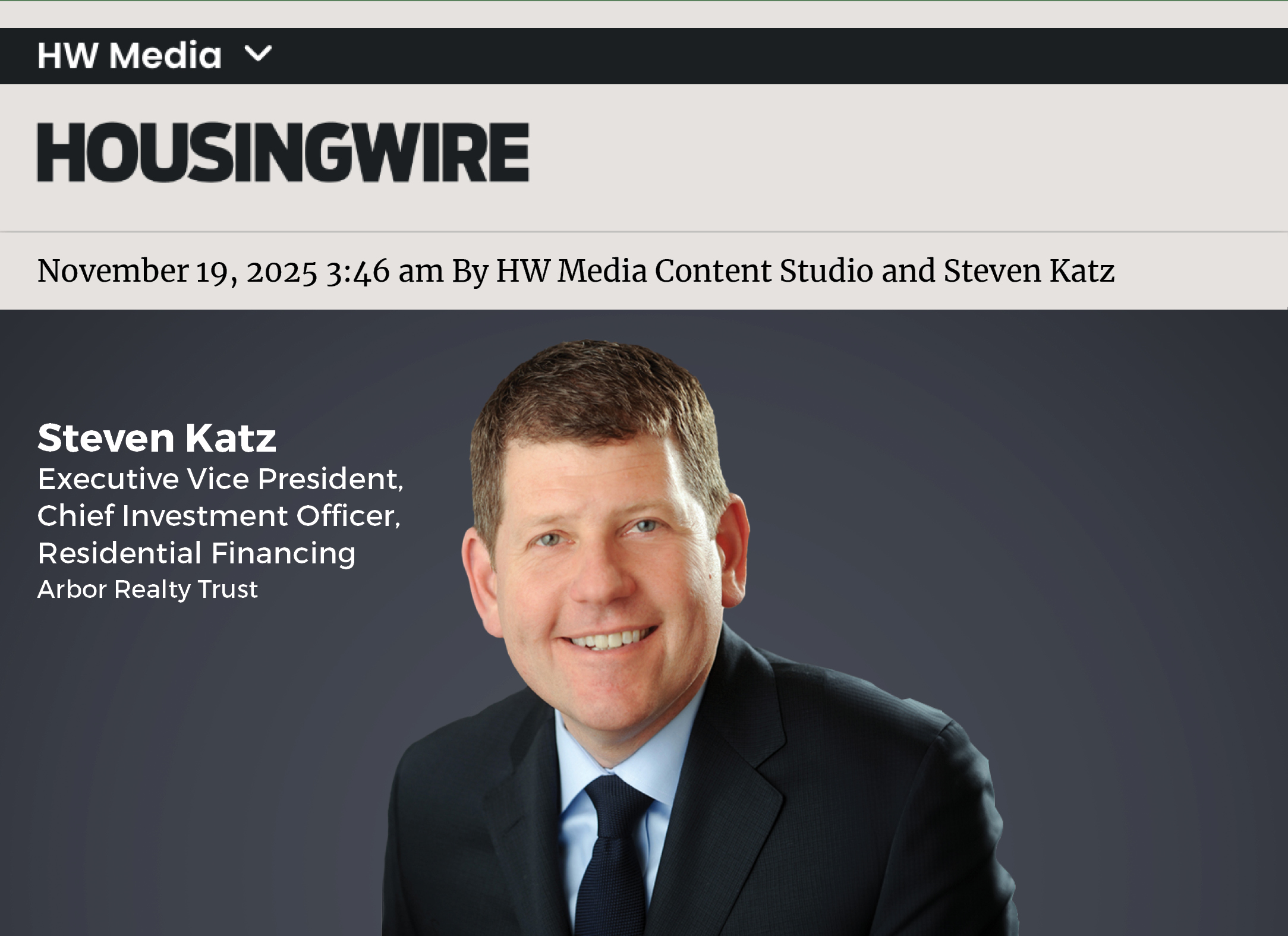Ivan Kaufman Talks Housing on Bloomberg TV: Perfect, Positive Storm
Arbor Realty Trust’s CEO explains COVID-19’s current and future impacts on multifamily housing
Ivan Kaufman, the Chairman, CEO and President of Arbor Realty Trust, Inc. (NYSE:ABR), which he founded, described today’s “perfect, positive storm for housing,” in a Bloomberg TV interview. “Low interest rates, people moving out of the urban areas, people buying homes – that’s why the housing market is on fire,” he said. “All those factors are working well together.”
On the program, “What’d You Miss?” the head of one of the most prolific multifamily lenders in the country explained why COVID-19 did not create a wave of massive foreclosures. Instead, it accelerated an even greater demand for suburban products.
With Arbor’s exceptional third-quarter performance, again increasing earnings and dividend, he shared his expertise on the multifamily market trends, eight months into the pandemic. He also provided prudent advice in forecasting what lies ahead.
“All the fundamentals still remain very good for multifamily,” said Kaufman. “There’s a little bit of softness with the Class A high-rises, new product, because a substantial number of tenants are moving to the suburbs. But overall, the asset class is performing extraordinarily well.”
Supplemented by the CARES Act and sheltering at home, tenants were spending less money. People are protecting their homes, where they are working and living. They’re making their payments, so their daily lives are not interrupted, he stated.
The head of the publicly traded REIT anticipates a second stimulus package. He acknowledged that awaiting the next round of federal assistance could be painful for some tenants. Yet, Kaufman opined that, in general, renters and homeowners would be in good shape.
However, he expressed concern for major urban gateway markets, including New York, Los Angeles and San Francisco. He pointed out that these are some of the labor markets most impacted by COVID-19, with many people leaving and not returning to those particular areas, and where new units are being delivered. “We expect there to be a reasonable amount of softness in those markets, specifically with market-rate apartments. You’ll see some concessions and a disproportionate amount of vacancies in those areas. That should last through next September.”
In addition, universities have remained closed. He added that students not returning to urban campuses will further delay a rebounding to economic normalcy in those areas.
In predicting an 11-month recovery, the leading real estate executive provided two-fold considerations for investors and operators. “Number one, you’ve got to carry the assets you buy through now until September,” he said. “Second, what is the recovery level going to be?” To truly understand investment markets, he emphasized the need to calculate future rents, occupancy and taxes.
Watch the complete Bloomberg TV interview in the video above.





